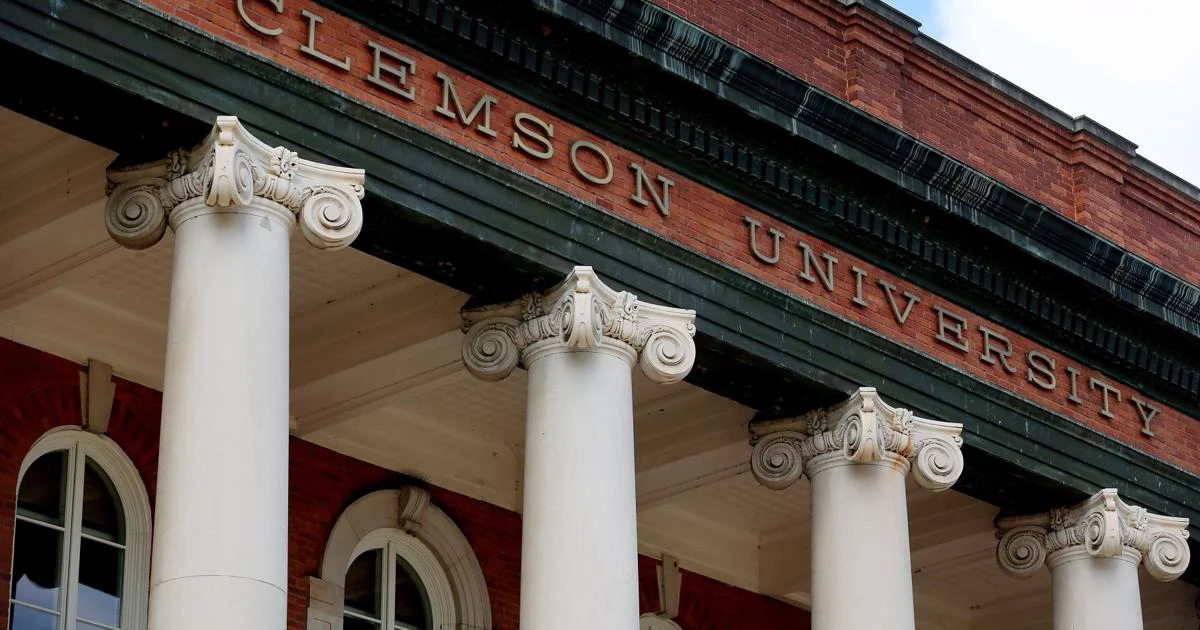Copyright Charleston Post and Courier

In the first couple years of her career, University of South Carolina historian Carol Harrison felt firsthand the fragility of academic freedom. She did not have tenure when someone called her a “feminist” and implied she ought to be disciplined for it. The experience scared her. "Accusing a professor of being a feminist, that's not actually a fireable offense, right?" she said. "Accusing a professor of believing in climate science should not be a firing offense. Accusing a professor of doing vaccine research. These are all things we should be free to do. They're important forms of knowledge." Harrison, whose research focuses on French history, Catholicism and women’s history, said the early sense of vulnerability underlined for her why tenure matters. It shields scholars from people who might not like their ideas, she and other proponents say. And it has a positive impact on South Carolina’s economy, drawing in cutting-edge researchers with promises of job security. But tenure increasingly is under attack in South Carolina and beyond. The percentage of tenured and tenure-track professors in South Carolina already had been in decline over the past two decades — following a nationwide trend of increasing part-time and adjunct faculty without tenure protections. Now, spurred on by the recent assassination of a popular GOP campus activist, a group of conservative South Carolina lawmakers — including the S.C. House speaker — have proposed doing away with tenure entirely at the state’s public colleges, claiming it encourages laziness and a lack of accountability. Two tenure-track professors at Clemson University were fired over online comments about the activist, Charlie Kirk, and many of the same lawmakers who called for their removal argued that, going forward, all faculty must be held more accountable for their actions inside the classroom and beyond. The South Carolina lawmakers are among a growing circle of higher ed critics in at least 11 states where tenure is being restricted, subjected to new review requirements or discarded at public colleges and universities. These include laws passed this year in Ohio and Kentucky that could threaten the jobs of tenured professors if they don’t meet productivity or performance metrics. South Carolina lawmakers unsuccessfully proposed bills to end tenure in 1995 and again in 2022. They promise to try again when they reconvene in 2026. “Tenure may be a relic of the past that should not continue to be in higher education in South Carolina,” House Speaker Murrell Smith, R-Sumter told the newspaper last month. Tenured profs give way to adjuncts Federal data compiled by the American Association of University Professors shows that in 2003, nearly two-thirds of South Carolina’s college and university faculty were tenured or on a track to acquire it. Twenty years later, that figure had fallen to 45 percent among the 12 public colleges and universities here that confer bachelor's degrees and higher. At the state’s top research universities — Clemson University and the University of South Carolina — 57 percent of faculty were part-time or working on a non-tenure-track contract by 2023. The transformation of teaching in South Carolina's higher ed classrooms has proven "ruthless" to part-time lecturers and non-tenure-track instructors, said John Crangle, a former part-time faculty member at the now defunct Limestone University. Hired on limited-term contracts, these people are expendable, he said. "They're brought in, used up in two or three, four years, and pushed out the door again," Crangle said. "I've told young people who talk to me about being a college professor ... I said the answer is 'no.' The profession has changed so much in my lifetime." Positions that lead to tenure also have gotten competitive, with far more young researchers acquiring doctorates than there are full-time faculty positions to accommodate them. Nationwide, doctorate recipients increased 42 percent from 2003 to 2023, according to the National Center for Science and Engineering Statistics. In that same period, tenure or tenure-track positions at South Carolina’s public colleges and universities increased just 17 percent, even as full-time enrollment at its colleges and universities shot up by 39 percent. Stepping into the breach to teach those 30,000 additional students were nearly 3,000 non-tenure-track and part-time faculty members, data from 2003 to 2023 shows. Their numbers tripled at Clemson and grew sixfold at USC. Hired with a focus on teaching, not research, these people work as “adjuncts,” “lecturers,” “instructors,” “teaching associate professors,” “clinical professor” and “professional track faculty,” among other titles. With low stipends and few or no benefits, some teach a full-time load of up to five courses — often teaching freshman-level courses — and can have more than 100 students per semester . Adjuncts also are highly subject to the whims of their students, whose evaluations help school administrators determine whether to keep adjuncts employed. “They’re not second-class citizens,” said Harrison, president of the AAUP in South Carolina. “They’re an essential part of what we do. But they don’t have the same protections that tenured and tenure-track faculty have.” What is tenure? In 2023 alone, South Carolina’s public colleges and universities spent $915.8 million on research and development projects headed up by their faculty, according to the National Science Foundation. Since 2014, that spending has increased annually by about 4 percent. Limiting or taking away tenure would would affect nearly 4,000 tenure and tenure-track professors at the state’s publicly funded schools. Yet some Republicans in South Carolina have claimed tenure is a crutch for slacking professors. “The whole idea of blanket tenure at a state university, to me is an anathema to accountability,” S.C. Freedom Caucus Chair Jordan Pace, R-Goose Creek, said. Professors typically earn tenure by publishing research, securing grants, demonstrating excellent teaching and serving the university over a six-year probationary period — rising from a "tenure track" assistant professor to a tenured associate professor before eventually gaining a full professorship. The job security that tenure provides draws some of the world's brightest minds to South Carolina, said Dave Loope, a former officials with the Commission on Higher Education who wrote a white paper in support of tenure 30 years ago. Hundreds of higher education institutions, including Clemson, USC and the college of Charleston, have codified tenure protections in their faculty manuals — drawing heavily from concepts first drafted by members of the American Association of University Professors over a century ago. The idea, Harrison said, is to protect professors in their pursuit of truth against the influence of politics, self-interested college administrators, corporate sponsors or anyone else who might disagree with them. Crangle, an attorney and longtime government watchdog, said the academic community rallied around tenure after some schools in the South rejected research into the theory of evolution. Around the same time, he said, concern was growing over the financial influence of a small number of "robber barons" who wanted to suppress professors critical of the abuses of capitalism. A part-time instructor who never held tenure, Crangle pointed to two occasions when he lost his teaching post over ideas with which administrators disagreed. He said he lost a job at South Dakota State University in 1969 because he wrote letters to area newspapers in opposition to the Vietnam War and also spoke to the athletics director there about admitting Black students. Decades later, he said he lost a job at Limestone University when he openly disagreed with the university president over its rapid expansion of online instruction. Firings rock everybody’s world Harrison said the rhetoric around ending tenure — employed by conservative state lawmakers who lobbied successfully to have two tenure-track professors at Clemson fired last month — has "rocked everybody's world" in academia. The professors who had allegedly posted disparaging remarks about conservative activist Charlie Kirk on their personal social media pages were accused of promoting violence in the wake of Kirk's assassination. “Now Clemson faculty is inciting violence against conservatives,” Pace tweeted Sept. 13, calling for a special session of the General Assembly to “defund Clemson” and “end tenure at state colleges.” Free speech advocates have argued that the posts were protected speech about an issue of public concern, and academic freedom experts have pointed out that Clemson did not follow its faculty manual's due process requirements when it dismissed the men within days of their posts. The faculty senate at Clemson largely agreed, invoking the firings when they passed a largely symbolic resolution last month to reject political pressures that are encroaching on academic freedom. “People are changing what they teach,” Harrison said. “They’re deciding they don’t want to address anything controversial, so they’re self-censoring. And that’s not just a loss for faculty, it’s a loss for students.”



